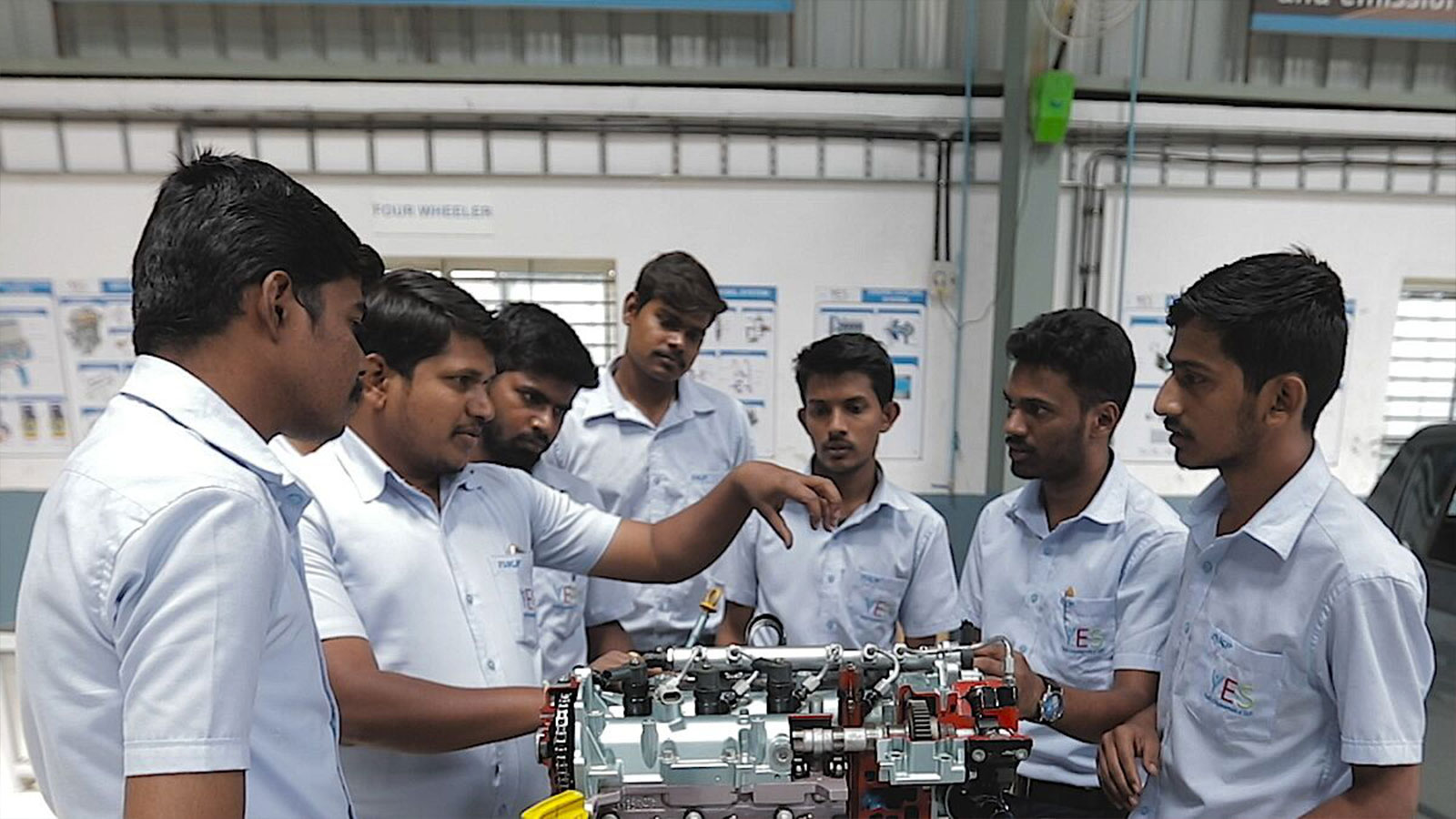In India, an estimated 80 percent of all employed people are in the informal sector, meaning they lack the wage security and other benefits that typically come from the formal sector. Instead, those in the informal sector rely on self-employment or odd jobs to keep themselves and their families afloat. Informal employment also means that often workers lose employment without warning because of a lack of contractual agreements.
Lack of education and skills are major factors affecting the growth and productivity of the informal sector over time. To combat the skills gap and help more people advance to meaningful jobs and livelihoods, LabourNet was created with the goal of improving the incomes of 10 million individuals in the information sector through education, employability, and entrepreneurship support.
When LabourNet was a potential investee for the foundation in 2013, we evaluated the business model and plans across several categories, which we have now compiled into our impact investing MISSION framework. As part of our review of their organization, we asked whether LabourNet had the appropriate leadership capacity and commitment to manage the investment. The future success of early-stage social enterprises is critically tied to an entrepreneur’s skills, talent, and commitment to the challenge at hand.
LabourNet co-founders Gayathri Vasudevan and Rajesh A.R. had significant experience in the labor industry prior to launching their social impact venture. In her work at the International Labor Organization, an agency of the United Nations, Vasudevan focused on skills and labor concerns, giving her a deep understanding of labor markets and a clear vision towards solutions at scale. A.R. helped launch TeamLease, one of India’s largest staffing solutions. His work with TeamLease provided him with a unique perspective on the needs workers have as they search for work, as well as what employers require from their workforce. In the five years that the foundation has worked with the team, we’ve seen that LabourNet’s leadership and experience combine to create a strong organization that is now the leading training provider for India’s informal sector.
In addition to strong leadership, it’s vital that there is strong mindset alignment within the organization’s board, employees, and other investors in order to successfully and measurably scale the impact of the business. From the very start of our partnership, it was clear that LabourNet’s founders and team were aligned on their social impact and financial goals. Similarly, co-investor Acumen and angel investors who sit on LabourNet’s board share the foundation’s commitment to improving the economic opportunities of workers in India’s informal sector. This alignment in vision and mindset has helped LabourNet navigate numerous challenges and scale to an organization that serves communities across India.
LabourNet has been turning a profit since 2015, and their topline is in excess of $15 million. Forbes India awarded Gayathri Vasudevan their India Leadership Award 2018 for Entrepreneur with Social Impact. Most importantly for us, LabourNet has cumulatively helped 700,000 people in India get the skills and certifications they need to get jobs, start successful businesses, and build stronger households.
This year, we met Kader – a young man who had to drop out of university to provide for his family when his dad was hospitalized. He started working at a garage, but was only able to do menial tasks because he lacked the training he needed to work on the cars he loved and earn more money. He found out about LabourNet, and started attending courses. Now, Kader has his own garage and can support his entire family. Check out Kader’s success story – thanks to LabourNet.
In partnership with the Michael & Susan Dell Foundation, the Social Innovation & Investment Initiative at the New York University Wagner Graduate School of Public Service (NYU Wagner) analyzed more than 40 foundation-related investments, and together we developed a MISSION framework to document the foundation’s impact investing strategy. The framework is comprised of the following elements: Market, Impact, Scale, Sustainability, Incrementality, Organization, and Next. This is the seventh post in a blog series that focuses on each of these elements. This post, on the Organization aspect of the framework, describes the way LabourNet’s strong leadership and entrepreneurial vision combine to create a strong commitment to success. Read the full case study here.
